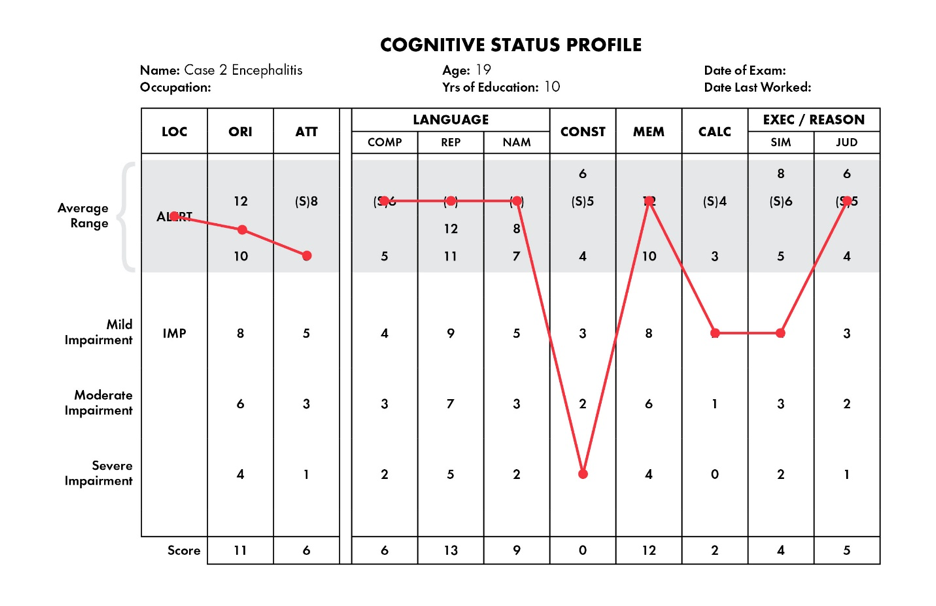There are no products in your shopping cart.
| 0 Items | $0.00 |
info@cognistat.com | +1 (514) 336 0136
There are no products in your shopping cart.
| 0 Items | $0.00 |
This 19-year-old man presented with an acute onset of delusions and hallucinations. Despite his psychotic symptoms, he was able to cooperate with testing. The Cognistat profile showed a marked constructional disability with additional problems in calculations and similarities. This testing preceded documentation of right hemispheric slowing on the EEG. Three days later the patient became febrile and developed seizures. Spinal fluid examination revealed a marked lymphocytic pleocytosis. Cultures were negative, and the patient was diagnosed as having viral encephalitis. Cognistat provided the earliest data suggestive of a neurologic etiology for his psychotic symptoms.
